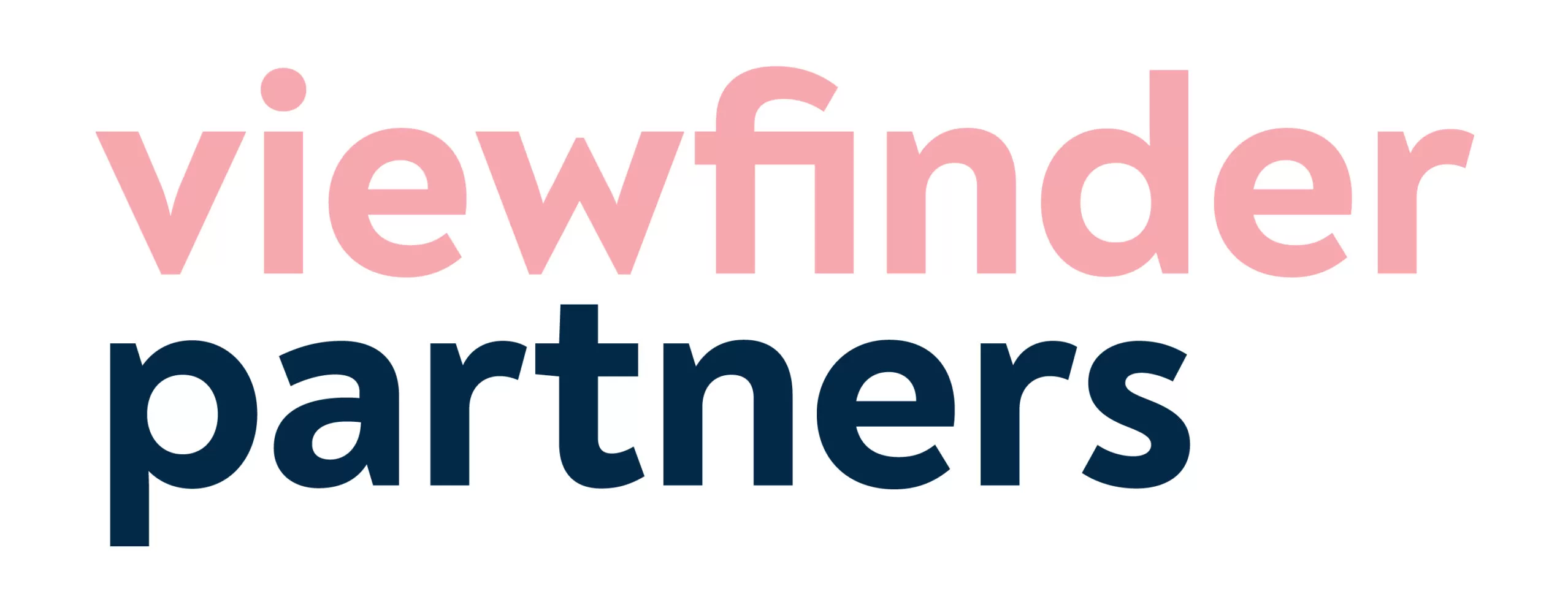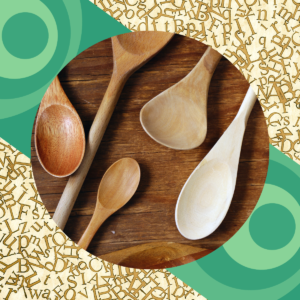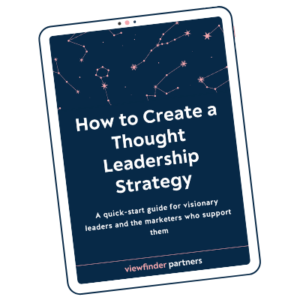How do you come up with new ideas?
Even in a normal year, it’s easy to get stuck in doing. You’re doing your work, crossing off items on your to-do list, getting the most pressing things done. It’s hard to make time to reflect, look to the horizon, or even ask why you’re doing what you’re doing or how you could do it better.
And in 2020, it’s been even harder to carve out time to reflect. We’re stressed. We’re stretched. We’re maybe a little sad. It’s not necessarily the best atmosphere for brainstorming or big-picture thinking.
A couple of weeks ago, I felt my head rise above those clouds. I was on a drive by myself. Instead of turning on one of my usual podcasts about the news or parenting or Life in 2020, I flipped through my podcast feed and picked something that felt a little more like eating my vegetables. It was about how to structure (and price) your work time, and the audience was agencies and consultants like me. Vegetables, right?
But instead of feeling bored, I felt my brain start buzzing.
The conversation gave me new ideas. I made new connections that I hadn’t considered before. It made me want to think. (And when you start a company with the word “ideas” in the name, being interested in, uh, thinking is kind of important.)
One thing the guest said really struck me. He was talking about one of his marketing projects — work he did every week, really putting in the reps. He said that he didn’t actually care about the usual marketing metrics or results of that work. Instead, he thought of it as his “idea lab.” It’s where he worked through new ideas, floated concepts to see if they stuck, and mined for the best ideas to use more broadly in his work.
IDEA LABS. Yes. We all need those. I started thinking about my own idea labs. My newsletter (you can subscribe at the bottom of this page) is certainly an idea lab for me. Every other week, I force myself to think, reflect, and write until I have something to share. It’s the structured practice that I need to make my loose, floating ideas more concrete.
I’m curious about other people and how they think. So often, my best idea lab is a 30-minute walk or drive with a podcast, or a conversation with someone else who’s interested in the same things I am. I get energy from other people’s ideas and thinking about how I can build on, contradict, or rethink them. I know that when I don’t make time to explore, read, and listen, I feel less energized.
And I often create idea labs for my clients. Maybe it’s a weekly call with me, where I ask a lot of questions, looking for the spark that will get them excited and turn into an idea we can use in their public work. Sometimes it’s the looming deadline of a monthly column, or a weekly podcast monologue they’ll need to record, or a newsletter.
I have heard agencies and creative departments call their idea labs “studios” — creative spaces and teams that are designed to generate a bunch of ideas, without a fixed project timeline or clear destination. The key idea is that creativity is messy, and if you want new ideas, you have to throw a bunch of things against the wall. You can’t just order up a new idea.
We all need idea labs. We need built-in time during the week to reflect. We need to push ourselves to ideate. Because if your product is your ideas (and if you work in professional services, your product is your ideas!), shouldn’t you invest time in developing and strengthening those ideas?
That’s my question for you this week, as we look ahead to 2021 and think about how we’ll spend our time. What are your idea labs? How do you make yourself think? When do you have permission to daydream and brainstorm? Do you need a new structure for your idea labs? Do you need to build in arbitrary deadlines to force yourself to reflect or even publish on a regular basis? How do you get your brain buzzing?




![target practice [thought leadership is a practice]](https://viewfinderpartners.com/wp-content/uploads/2024/02/get-unstuck-300x300.png)


